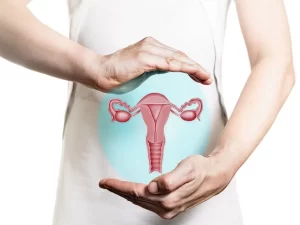

Dr. Gauri Agrawal, Founder & Director, Genestrings Diagnostics & Seeds of Innocence
Having a child is one of life’s greatest pleasures. However, you or your spouse may carry and pass on some hereditary diseases to your unborn or newborn kid. This invariably puts in motion a lifelong cycle of therapy and psychological suffering. Scientific discoveries in the realm of reproductive genetics, on the other hand, have nearly eliminated this option. Non-Invasive Prenatal Screening aids in the detection of autosomal aneuploidies and sex chromosome aneuploidies in the foetus, as well as microdeletion of genetic abnormalities. The Non-Invasive Prenatal Test (NIPT) looks for a variety of aberrations in the genetic information contained in the DNA. The test is extremely sensitive to Down syndrome (lifelong intellectual disability in the child). Expectant parents can rest assured that their child will be born free of hereditary problems thanks to this test.
The American College of Obstetricians and Gynecologists (ACOG) and the Society for Maternal-Fetal Medicine (SMFM) have recommended that non-invasive prenatal testing be made available to all pregnant women, regardless of age or risk status. Since its commercial release ten years ago, its accuracy for diagnosing common trisomies has dramatically improved, and it has become the gold standard of therapy in many countries throughout the world.
Researchers are now looking into expanding NIPT to detect more mutations, as well as combining testing for foetal abnormalities with the search for maternal health biomarkers that could indicate if a woman is at risk of pregnancy complications like pre-eclampsia (a pregnancy complication characterized by high blood pressure and signs of organ damage, most commonly the liver and kidneys.)
Who should take the NIPT?
This test is generally recommended for women who are at a high risk of having a child with Down Syndrome or other genetic abnormalities such as Edwards Syndrome (a genetic condition in babies that causes severe disability), Patau Syndrome (multiple and complex organ defects in the baby), and Turner Syndrome (medical and developmental issues, such as short stature, failure of the ovaries to develop, and heart defects in the child) based on their age, personal or medical history, or family history.
Women who fall pregnant later in life, such as when they are 30-35 years old, have a much-increased chance of having a child with Down syndrome or other genetic problems. This one-time screening procedure is designed to be painless and non-invasive for both the mother and the unborn child.
The Way Forward
NIPT should be performed on all pregnant women aged 22 to 50, regardless of risk, to identify pregnancies with a higher risk of chromosomal abnormalities in the foetus. Fertility clinics with their own in-house lab facility lower the danger of sample mishandling by eliminating logistics and increasing the likelihood of efficacy and accuracy by using cutting-edge technology. Labs that offer NIPT should offer speedy response times at reasonable prices, as well as proper post-diagnosis consultation by competent doctors.






